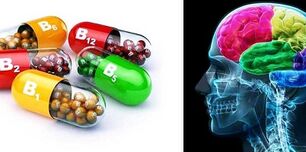
The human brain is an incredibly complex tool in our body. The center of the nervous system consumes up to 25% of energy, and its weight is at most two percent of body weight. In order for the brain to function fully and continuously, it is necessary to ensure the supply of carbohydrates, proteins and polyunsaturated fatty acids. Foods should contain amino acids, minerals and vitamins for the brain and memory.
Brain Connections
Now let's look at the B vitamins that the central nervous system needs. They are united by the following factors:
- they contain nitrogen;
- is considered water soluble;
- has the same effect on the body;
- often occur together in the same product;
Initially, after the discovery, scientists believed that they were working with only one vitamin, and over time, they discovered that they were different compounds with similar properties. There are 7 essential B vitamins:
- B1 or thiamine- necessary for a clear mind and strong memory. In addition, it reduces fatigue because it is involved in all the metabolic processes involved in energy production in the body.
- B2 or riboflavin- affects the quality and speed of the brain's reactions, is involved in the formation of erythrocytes, the synthesis of hemoglobin and the absorption of iron. Riboflavin is responsible for the activity of the adrenal glands and affects vision.
- Concentration of B3 or nicotinic acidis needed to improve memory. It protects us from stress. Helps transport oxygen to erythrocytes.
- B5 or pantothenic acidis an important element that allows the release of neurotransmitters that conduct electrochemical impulses between neurons. Pantothenic acid is needed for the synthesis of fatty acids responsible for long-term memory.
- B6 or pyridoxine- are also involved in the release of neurotransmitters. It also helps the brain absorb the amino acids it needs to function properly.
- B9 or folic acid- improves memory and speed of thought process. It is responsible for the formation and functioning of the immune and circulatory systems. In the first trimester of pregnancy, it is important for the health of the fetal neural tube.
- B12- helps to form the neuronal membrane of the neuron, which responds to the rapid passage of nerve impulses. Involved in the formation of erythrocytes, and therefore provides oxygen to the brain.
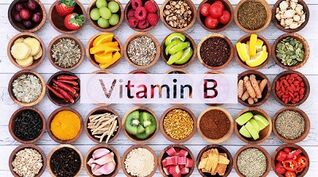
Antioxidants
Billions of living cells in our bodies are attacked by free radicals - molecules without one or more electrons. By losing their elementary particles, the cells are unable to perform their functions.
Ascorbic acid, vitamin E and beta-carotene (precursors of vitamin A metabolism) are resistant to free radical damage to brain tissue.
These vitamins improve memory and brain function.
Vitamin C is used by the body to make neurotransmitters and brain cells. The stability and absorption of group B substances depend on its level.
Vitamin E is required for Alzheimer's disease, which is characterized by the following symptoms: mood swings, memory loss, anger, aggression. It increases the effect of ascorbic acid and prevents its overdose.
Micronutrients, amino acids, polyunsaturated fatty acids
Omega-3 fatty acids affect brain function. They are highly saturated fats that our bodies cannot synthesize on their own. Consumption of omega-3 foods can help protect the brain from cognitive impairment and improve concentration and memory.
Protein is needed as a building material for the cells of our body and is made up of amino acids.
Most brains require:
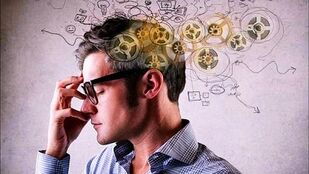
- Although glycineis synthesized in the body, it is an essential amino acid (ATA) that provides food. Glycine normalizes psychological and emotional state, stabilizes the brain, and to some extent neutralizes the effects of alcohol. This ATK improves sleep and regulates biorhythms.
- Tyrosine and Phenylalaninefight depression and anxiety. In a healthy body, they relieve the symptoms of chronic fatigue, improve memory and thinking, and increase the pain threshold. Phenylalanine is the main building material of phenylethylamine, which promotes love. Tyrosine, in turn, is the most potent antidepressant among amino acids. With the help of this APC, not only the symptoms of depression disappear, but also alleviate the symptoms of the premenstrual cycle. These amino acids help to overcome the dependence on caffeine.
- Tryptophan- enough to relieve headaches and irritability. Tryptophan helps reduce aggression and is used to treat hyperactivity in children. Medicines containing this substance should be used in the complex treatment of schizophrenia and neurosis. Intoxication during anorexia and bulimia therapy. After taking this amino acid, depression is suppressed to some extent.
For the brain to function properly, it is necessary to eat enough amino acids in food. The functioning of the central nervous system is impossible without micronutrients.
Zinc deficiency contributes to the development of depression, as well as neurological diseases - Alzheimer's and Parkinson's. Magnesium improves reading ability and memory. Its deficiency can cause headaches, depression and epilepsy. Copper is essential for the brain's ability to control nerve impulses. If the body is deficient, neurodegenerative diseases can occur.
Nebula and brain dysfunction are clear signs of iron deficiency.
Which products contain more useful things
There is no doubt that it is natural for a person to get the vitamins they need from natural foods to improve memory and the functioning of the cerebral cortex. Let's see which of them is suitable for normal cognitive functions.
Beans are the leader in B vitamins. It has a beneficial effect on all brain functions. After pea comes oatmeal - an insomnia helper, a good antidepressant. Then there are nuts, unpolished rice (in a dark shell), green vegetables, meat and dairy products.
Eating fatty fish improves brain function. It is rich in omega-3 fatty acids, which stimulate memory and improve information perception.
The human brain is made up of 60% fat, similar in composition to omega-3s, so these acids are used to make nerve cells. If you eat enough of this substance, you can stop mental decline in old age and avoid neurodegenerative diseases. Deficiency of omega-3 in the body can cause depression and reduce a person's ability to work.
Coffee contains caffeine and antioxidants that are good for the brain. Therefore, a cup of fragrant drink not only invigorates in the morning, but also has a positive effect on brain function.
Caffeine allows:
- cheer up;
- Increase alertness by inhibiting the synthesis of adenosine, which causes drowsiness; Increase the concentration of
- .

Despite the controversy surrounding the aromatic drink, the caffeine and antioxidants in coffee allow the brain to function more productively. Moderate coffee consumption reduces the risk of developing neurodegenerative diseases. But, unfortunately, people with high blood pressure are against drinking this drink.
Blueberries are another useful and unique product that fights the aging of nerve cells and the development of brain diseases. This is due to the high content of antioxidants in fruits. These substances help to improve concentration, and sometimes short-term memory impairment.
The main ingredient in curry is not only turmeric food, but also the taste of life. Curcumin helps to activate blood circulation and memory.
Turmeric is very useful because it:
- promotes the growth of brain cells;
- fights blues and melancholy: curcumin affects the synthesis of "mood hormones" - serotonin and dopamine;
- stimulates memory, which is especially necessary for patients with Alzheimer's disease.
You can get a lot out of curcumin by adding turmeric to your tea and curry dishes.
Vegetables like broccoli, which most children don't like, contain a lot of nutrients. One hundred grams of the plant contains more than 100% of the daily value of vitamin K: the body uses it to produce fats that are abundant in brain cells.
Vitamin K keeps you healthy and the antioxidants in broccoli help the body fight brain damage.
Pumpkin seeds are another powerful antioxidant. They contain many trace elements: zinc, magnesium, copper and iron. To improve the quality of mental work, it is necessary to include pumpkin seeds in your diet.
It's better to eat dark chocolate or drink cocoa. These foods are rich in flavonoids, antioxidants and caffeine, which improve mood and slow the aging of the brain.
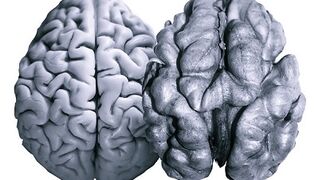
Nuts complete the list of foods that are good for the brain. In addition to the B vitamins, they contain: omega-3 fatty acids, antioxidants, vitamin E, and perhaps the external resemblance of nuts and the human brain is not accidental?
One orange per day in the diet provides the body with the daily requirement of vitamin C, as well as prevents brain aging by protecting it from free radicals. Vitamin C is found in tomatoes, kiwis, guavas, bell peppers and strawberries.
Eggs are an excellent source of vitamins, folate and choline. They prevent brain aging and melancholy.
Although the effects of eggs on the body have not yet been fully elucidated, the benefits of eating them have long been known.
Green tea also improves brain function. High in caffeine and L-theanine, it reduces anxiety, relieves fatigue and relaxes. Green tea helps improve memory.
In conclusion, a balanced diet is a relatively inexpensive and effective way to improve brain function and memory.
It's best to eat fresh, organic foods and drink fluids daily.
Our diet directly affects the stable functioning of the brain. In order to keep it active, in addition to eating, you should always exercise and train your cognitive skills.
Pharmacy medicines
In today's world, it is very difficult to provide yourself with natural vitamins. Most nutrients are lost during food processing (sterilization, preservation, exposure to high and low temperatures). The way out of this situation is to make up for the missing elements with the help of analogues synthesized by the pharmaceutical industry.
Vitamins for memory and brain function for adults and children can be purchased at any pharmacy. Products that contain a complete set of vitamins necessary for the brain in one tablet are very popular. It is often combined with trace elements. A partially complex method is also used, which contains a group of vitamins, such as the B group.
Preparations with one active ingredient (folic acid, vitamin C) are also produced. Their advantages include low cost, the possibility of overdose and allergic reactions.
There are medications that contain vitamins enriched with nootropic compounds to improve memory and focus.
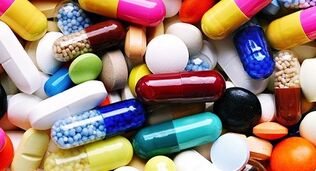
Brain-stimulating amino acids and omega-3 acids are separated.
Pharmaceuticals that improve brain function have a positive effect on the thought process, sharpening concentration and improving memory. Such vitamins make a person calm and balanced. The elderly should take dietary supplements and vitamins, as they rob the brain tissue and restore the elasticity of blood vessels.
You can't expect immediate results from taking vitamins. The changes are seen in conventional medicine.
Age-related cognitive decline awaits anyone who has lived long enough. However, timely preventive measures will ensure the normal functioning of the brain in the future.
You need to eat a balanced diet, trying to use more natural foods that contain antioxidants and vitamins for mental activity. In times of mental stress, seasonal deficiencies in fresh fruits, in old age, vitamin deficiencies should be supplemented with synthesized drugs.







































































